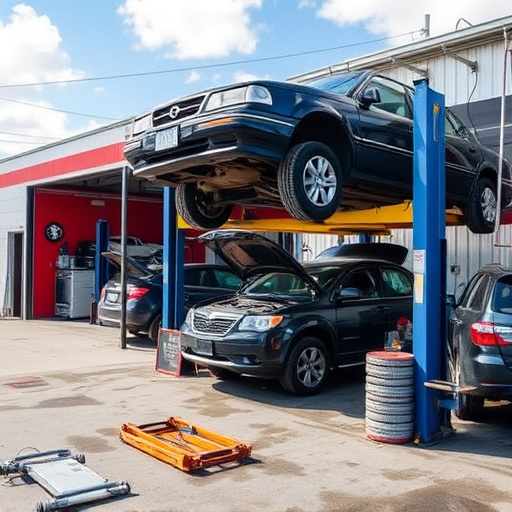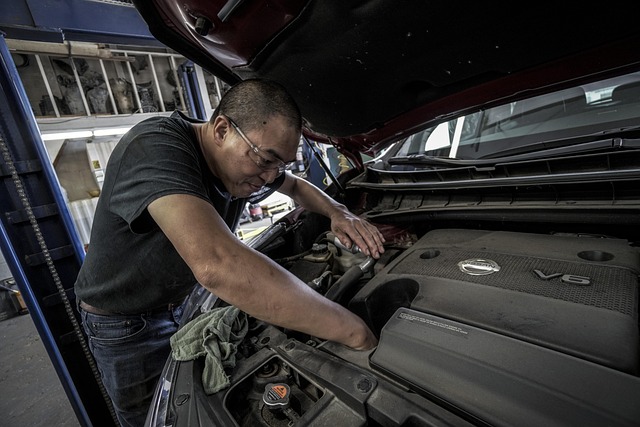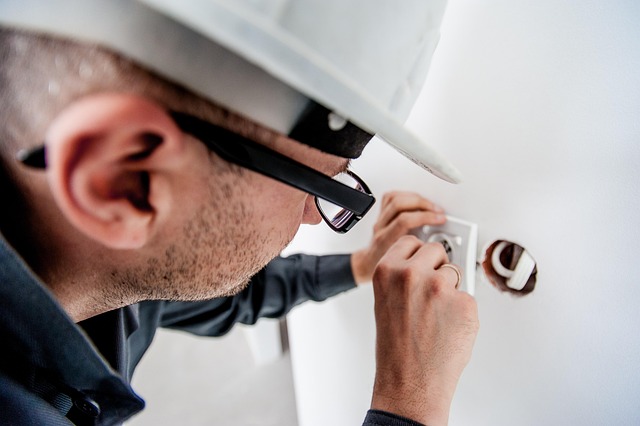Backorders of specialized auto body shop parts significantly delay vehicle repairs, impacting customer satisfaction and business operations. To combat this, shops can implement strategies such as strengthening supplier relationships, negotiating faster shipping, adopting efficient inventory management systems, diversifying suppliers, and providing transparent communication to customers about part availability and timelines. This proactive approach streamlines collision center operations and enhances the overall customer experience even with potential auto body shop parts delays.
In today’s complex automotive landscape, backordered auto body shop parts are a significant challenge for shops and customers alike. This article delves into the root causes of these delays, from supplier issues to global logistics problems. We explore strategies that auto body shops can implement to mitigate the impact, focusing on improved inventory management and proactive supplier relationships. Additionally, we discuss best practices for managing customer expectations during part delays, ensuring a positive experience despite unforeseen setbacks.
- Understanding Backordered Auto Body Shop Parts: Causes and Impact
- Strategies to Mitigate Delays: What Auto Body Shops Can Do
- Customer Experience: Managing Expectations During Part Delays
Understanding Backordered Auto Body Shop Parts: Causes and Impact

Backordered auto body shop parts are a common challenge faced by many automotive repair facilities, causing significant delays in vehicle restoration and repair services. This issue arises when essential components required for a specific vehicle’s repair or customization are unavailable due to various reasons. Manufacturers often experience supply chain constraints, leading to production backlogs and delayed shipments of these specialized parts.
The impact of such backorders is far-reaching. For auto body shops, it means extended turnaround times for customers who rely on timely repairs. This can lead to customer dissatisfaction and loss of business. Moreover, vehicle repair services may require temporary halts or adjustments in their workflow as they wait for the necessary parts to become available, potentially disrupting their overall operations. Even high-end brands like Mercedes-Benz repair shops are not immune to these delays, emphasizing the need for efficient inventory management and proactive supply chain strategies to ensure smooth vehicle restoration processes.
Strategies to Mitigate Delays: What Auto Body Shops Can Do

To mitigate delays caused by backordered auto body shop parts, shops can employ several strategies. First, establishing strong relationships with reliable suppliers is key. By fostering partnerships and negotiating expedited shipping or priority access to inventory, auto body shops can reduce the time between ordering and receiving crucial parts needed for collision repair services. Additionally, implementing an efficient inventory management system allows for better tracking of part availability and demand, enabling proactive ordering and minimizing backorders.
Shops can also invest in a diverse supply chain by sourcing parts from multiple suppliers across different regions. This reduces the reliance on single points of failure and ensures that even if one supplier experiences delays or shortages, alternative sources can pick up the slack. Lastly, offering customers transparent communication regarding estimated repair timelines and part availability can set expectations and enhance customer satisfaction, despite potential delays.
Customer Experience: Managing Expectations During Part Delays

When customers bring their vehicles to an auto body shop for repairs, they expect a timely and efficient service. However, delays in receiving specific auto body shop parts, especially those needed for specialized services like paintless dent repair or auto glass repair, can significantly impact the customer experience. It’s crucial for collision centers to manage these expectations proactively.
Shop staff should communicate openly with customers about part backorders and estimated wait times. Providing transparent updates ensures clients feel involved in the process, fostering trust. Additionally, offering alternative solutions, such as suggesting comparable parts or recommending temporary fixes, demonstrates a commitment to customer satisfaction. This proactive approach can turn a potential negative experience into a positive one, ensuring clients appreciate the shop’s efforts even during delays.
Backordered auto body shop parts can significantly delay repairs, impacting both shops and customers. By understanding the causes of these delays and implementing effective strategies, such as diversifying suppliers and improving inventory management, auto body shops can minimize disruptions to service. Managing customer expectations through transparent communication is key to maintaining a positive experience amidst part supply challenges, ensuring that folks receive their vehicles promptly even in light of potential setbacks.














